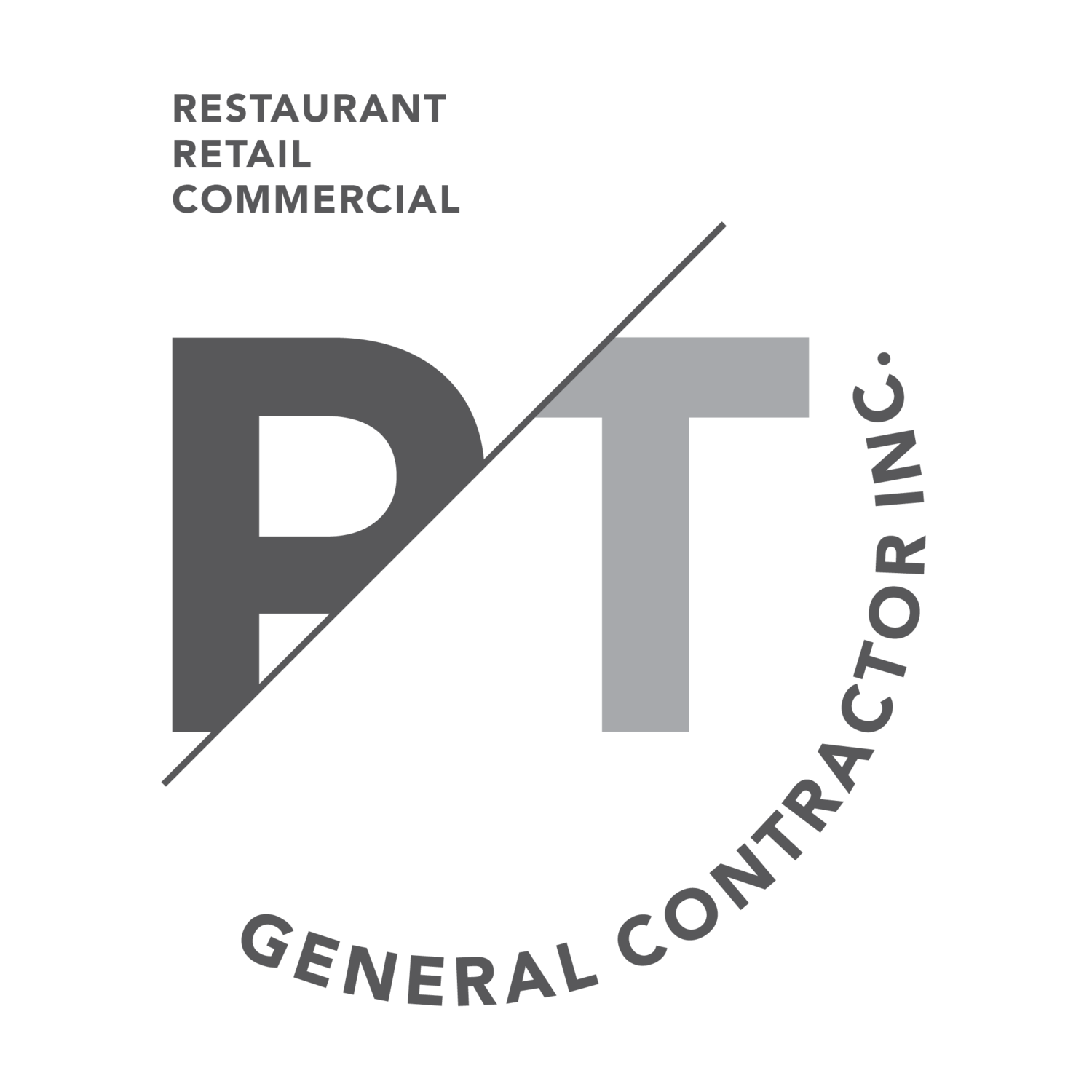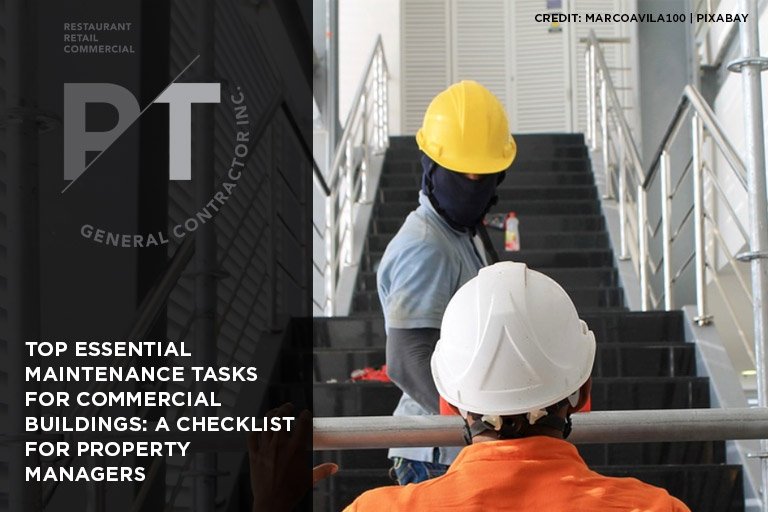Top Essential Maintenance Tasks for Commercial Buildings: A Checklist for Property Managers
Top Essential Maintenance Tasks for Commercial Buildings: A Checklist for Property Managers
Maintaining commercial buildings isn’t just about keeping the structure intact; it’s about ensuring everything within the building runs smoothly and efficiently. Research shows that consistent upkeep significantly boosts the performance of essential systems like HVAC and lighting, which in turn improves energy efficiency and lowers operational costs.
Moreover, a well-maintained facility directly impacts tenant satisfaction and occupancy rates, highlighting the importance of maintenance for both the building’s integrity and the comfort and productivity of its occupants. As a property manager, having a thorough maintenance plan is crucial for the long-term success of any commercial building.
Inspect and Service HVAC Systems
Regular maintenance of HVAC systems is crucial for ensuring optimal performance and energy efficiency. As a property manager, you should prioritize the following tasks to keep the system running smoothly:
Conduct Regular Inspections and Servicing
Schedule routine inspections by qualified technicians to assess the condition of the HVAC system. This helps in identifying any potential issues before they become major problems, ensuring the system runs efficiently and reducing the risk of unexpected breakdowns.
Perform Seasonal Tune-Ups
Prepare the HVAC system for peak seasons by scheduling tune-ups before the summer and winter months. This involves checking and calibrating the system to handle the increased demand during extreme weather conditions, ultimately improving energy efficiency and extending the lifespan of the equipment.
Replace Filters and Clean Ducts
Regularly replacing air filters is essential for maintaining indoor air quality and ensuring the HVAC system operates efficiently. Dirty filters can restrict airflow, causing the system to work harder and consume more energy.
Additionally, schedule duct cleaning to remove dust, debris, and other contaminants that can reduce the system's efficiency and negatively impact air quality.
Monitor and Maintain Plumbing Systems
Proper maintenance of plumbing systems is essential to prevent costly water damage and ensure a reliable water supply. Property managers should focus on the following key tasks to keep the plumbing system in top shape:
Inspect Pipes Regularly
Avoid water damage by regularly checking the plumbing system
Conduct routine inspections of the building’s plumbing pipes to detect leaks, signs of corrosion, or blockages. Early identification of issues like minor leaks or weakened pipes can prevent more significant problems, such as burst pipes or water damage, saving both time and money in the long run.
Maintain Drainage Systems
Regularly check and clean drainage systems, including sinks, toilets, and floor drains, to prevent clogs and backups. Clogged drains can lead to overflow and water damage, which can be costly to repair and disruptive to building operations. Ensure that all drainage systems are functioning properly to avoid these issues.
Service Water Heaters and Boilers
Schedule routine maintenance for water heaters and boilers to ensure they operate efficiently and safely.
Regular servicing can help extend the lifespan of these systems, reduce energy consumption, and prevent unexpected failures that could disrupt the building’s hot water supply. Be sure to check for sediment buildup, leaks, and pressure relief valve function during these inspections.
Examine and Maintain Electrical, Fire Safety, and Security Systems
Ensuring the safety and security of a commercial building requires diligent maintenance of electrical, fire safety, and security systems. Property managers, often working with commercial contractors in Toronto, should prioritize the following tasks to protect the building and its occupants from potential hazards:
Conduct Routine Electrical Inspections
Schedule regular inspections of the building’s electrical systems, including wiring, outlets, and circuit breakers.
Identifying potential hazards such as frayed wires, overloaded circuits, or faulty connections early can prevent electrical fires and ensure the system operates safely and efficiently. Regular inspections also help in maintaining compliance with local safety regulations.
Maintain Lighting Systems
Ensure that all lighting fixtures are functioning properly, including both interior and exterior lights. Replace any burnt-out bulbs and consider upgrading to energy-efficient lighting solutions, such as LED bulbs, to reduce energy consumption.
Additionally, regularly test emergency and exit lighting systems to ensure they are operational in the event of a power outage.
Test Backup Power Systems
Ensure that backup power systems, such as generators and battery backups, are regularly tested and maintained. This is crucial for keeping essential systems running during power outages, including emergency lighting, elevators, and security systems.
Check Fire Alarms and Smoke Detectors
Regularly test fire alarms, smoke detectors, and carbon monoxide detectors to ensure they are fully functional. Replace batteries and update systems as necessary to comply with safety standards. These systems are critical for early detection of fire hazards and protecting the lives of building occupants.
Service Sprinkler Systems
Conduct routine testing and maintenance of sprinkler systems to ensure they are in working order and will activate in the event of a fire. This includes checking water pressure, inspecting sprinkler heads for obstructions, and ensuring that the system meets all local fire safety codes.
Maintain Emergency Exits and Signage
Regularly inspect emergency exits, doors, and signage to ensure they are clearly marked, accessible, and free of obstructions. In an emergency, quick and easy access to exits is essential for occupant safety.
Check Surveillance Systems
Regularly inspect and test surveillance cameras, alarms, and monitoring systems to ensure they are fully functional. Well-maintained surveillance systems are essential for deterring crime, monitoring building security, and providing evidence in case of incidents.
Maintain Access Control Systems
Ensure that access control systems, including key card readers, biometric scanners, and intercom systems, are regularly updated and tested for proper function. These systems help secure the building by controlling who can enter and exit, and by keeping unauthorized individuals out.
Strengthen Cybersecurity Measures
In addition to physical security, protect the building’s digital systems from breaches by regularly updating software, conducting security audits, and implementing strong passwords and encryption protocols. Cybersecurity is increasingly important as more building systems become connected to the Internet.
Assess and Maintain Structural Integrity
Maintaining the structural integrity of a commercial building is crucial for ensuring safety, functionality, and longevity. Property managers should focus on the following essential tasks to preserve and enhance the building’s structural health:
Conduct Regular Structural Inspections
Make sure the structural integrity is not compromised
Schedule periodic inspections by qualified structural engineers or contractors to assess the condition of key structural elements such as foundations, load-bearing walls, and support beams. These inspections help identify potential issues like cracks, settling, or deterioration that could compromise the building’s stability.
Monitor and Repair Roof Structures
Inspect the roof structure, including trusses and supports, for signs of damage or wear. Regular maintenance and timely repairs of the roof structure are essential to prevent leaks and ensure that the roof can support its intended load.
Keep Your Building in Top Shape
Regular maintenance is crucial to a safe, efficient, and welcoming commercial space. For expert support in building maintenance in Toronto, consider partnering with PT General Contractor. Contact us today at (416) 451-6173 to ensure your building remains in excellent condition and your maintenance tasks are handled professionally.



